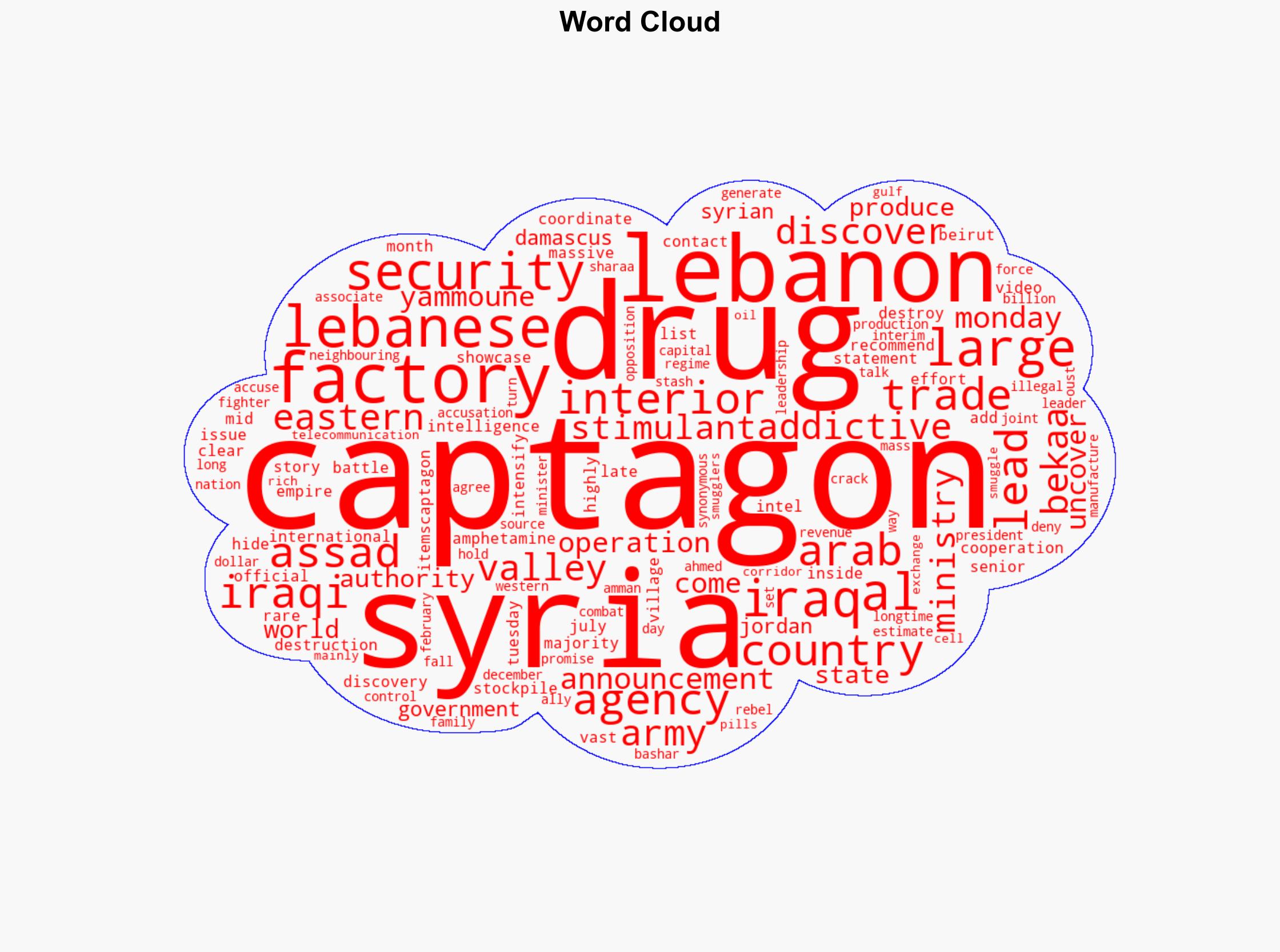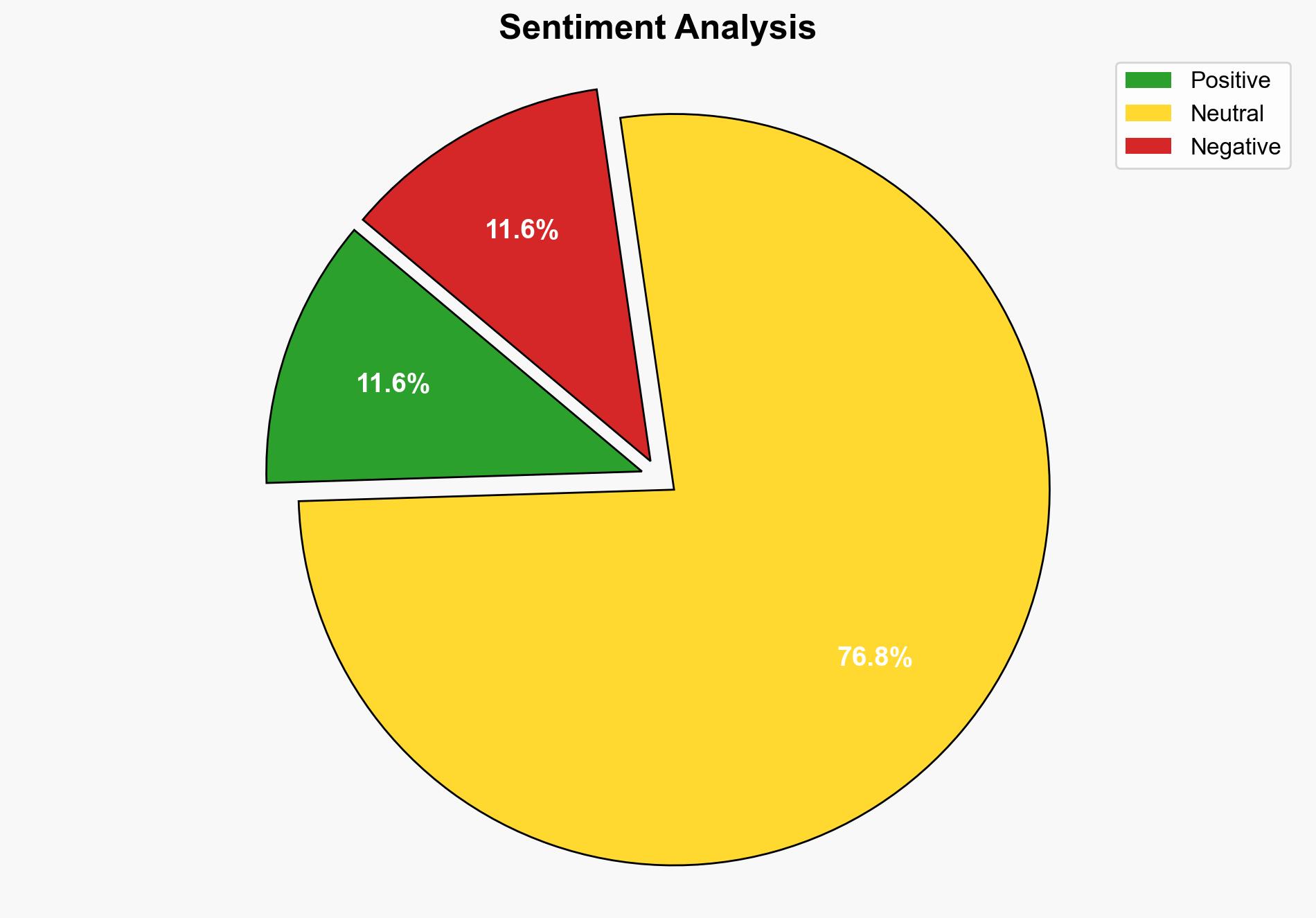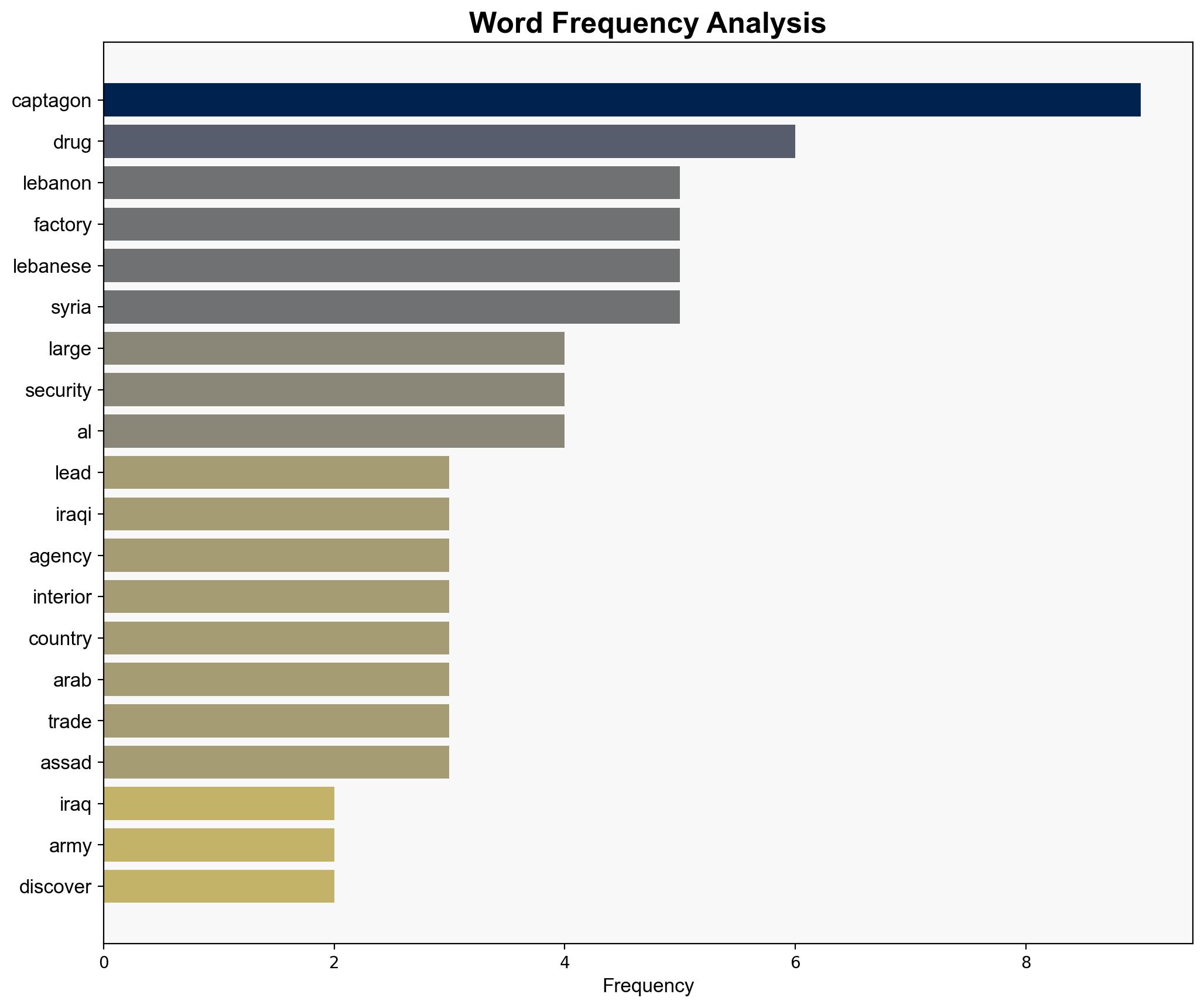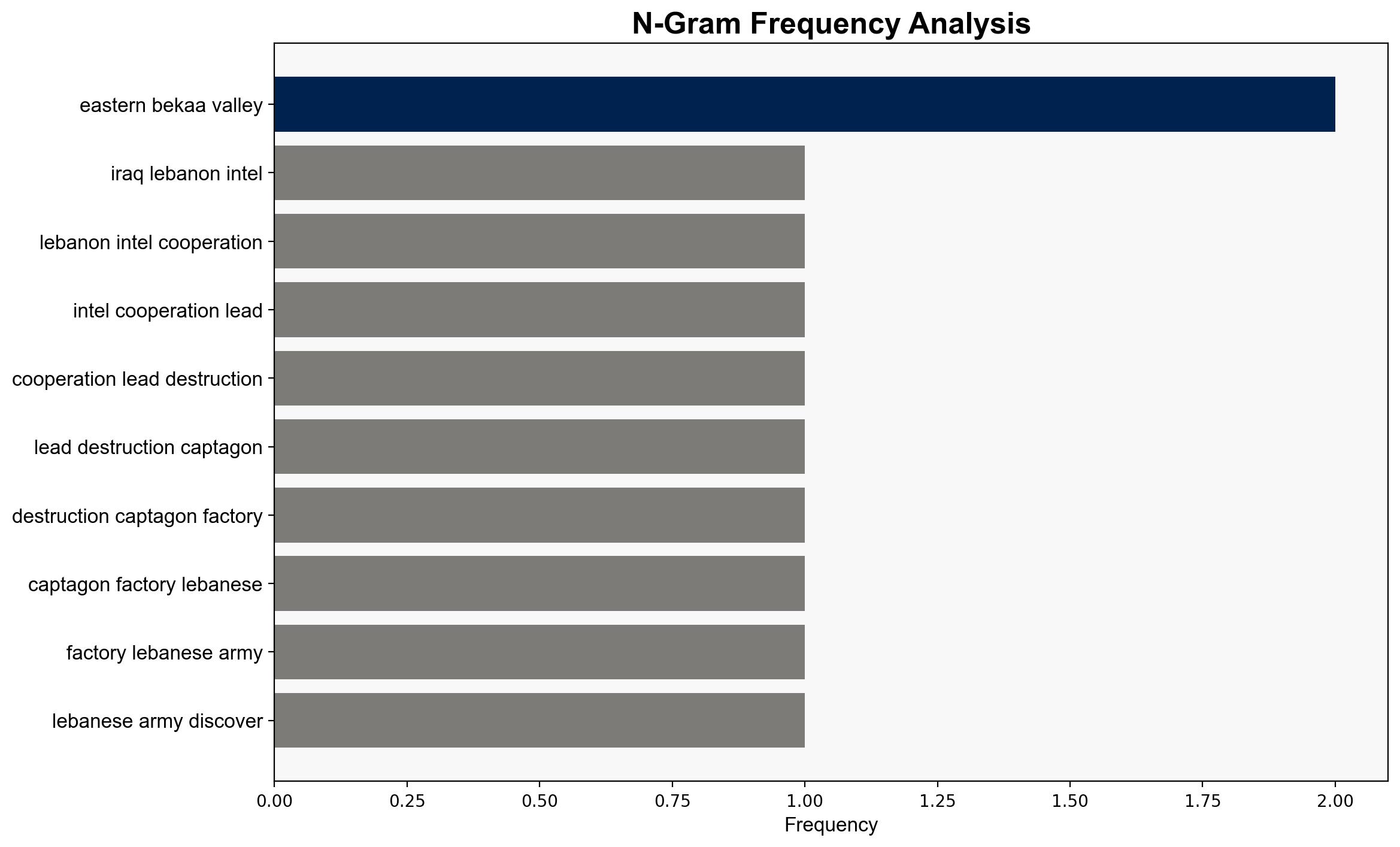Iraq Lebanon intel cooperation leads to destruction of Captagon factory – Al Jazeera English
Published on: 2025-08-19
Intelligence Report: Iraq Lebanon intel cooperation leads to destruction of Captagon factory – Al Jazeera English
1. BLUF (Bottom Line Up Front)
The most supported hypothesis is that the Iraq-Lebanon intelligence cooperation is a strategic move to curb the regional drug trade, specifically targeting Captagon production linked to Syrian networks. Confidence in this assessment is moderate due to potential geopolitical complexities and the involvement of multiple state actors. Recommended action includes enhancing intelligence-sharing frameworks and increasing regional cooperation to dismantle drug production networks.
2. Competing Hypotheses
1. **Hypothesis A**: The cooperation between Iraq and Lebanon is primarily aimed at dismantling a significant drug production operation, with a focus on reducing the influence of Syrian-linked networks in the region.
2. **Hypothesis B**: The operation is a politically motivated move to demonstrate regional security collaboration and strengthen diplomatic ties, with the drug bust serving as a secondary objective.
Using the Analysis of Competing Hypotheses (ACH) 2.0, Hypothesis A is better supported due to the direct impact on drug production and the explicit mention of intelligence coordination targeting Captagon factories. Hypothesis B lacks specific evidence of political motives beyond the immediate security operation.
3. Key Assumptions and Red Flags
– **Assumptions**: It is assumed that the intelligence provided by Iraq was accurate and actionable. Another assumption is that the operation’s primary goal was drug interdiction rather than political signaling.
– **Red Flags**: The lack of detailed information on the extent of Syrian involvement and the potential for misinformation or exaggeration of the operation’s success. Additionally, the timing of the announcement could be politically motivated.
4. Implications and Strategic Risks
The successful operation may disrupt regional drug trade networks, potentially leading to retaliatory actions by affected groups. There is a risk of escalating tensions with Syria if the operation is perceived as targeting Syrian interests. Economically, reducing Captagon production could impact illicit revenue streams in the region. Geopolitically, increased cooperation may shift regional power dynamics, potentially affecting alliances.
5. Recommendations and Outlook
- Enhance intelligence-sharing mechanisms among Iraq, Lebanon, and other regional partners to ensure sustained pressure on drug networks.
- Monitor potential retaliatory actions by drug networks and prepare contingency plans.
- Scenario Projections:
- **Best Case**: Continued cooperation leads to significant disruption of drug networks and improved regional security.
- **Worst Case**: Retaliation by drug networks results in increased violence and instability.
- **Most Likely**: Incremental progress in drug interdiction with occasional setbacks due to geopolitical tensions.
6. Key Individuals and Entities
– Ahmed al-Sharaa: Interim Syrian President accused of involvement in Captagon production.
– Bashar al-Assad: Former Syrian leader whose regime is implicated in drug trade activities.
7. Thematic Tags
national security threats, regional cooperation, drug interdiction, geopolitical dynamics





